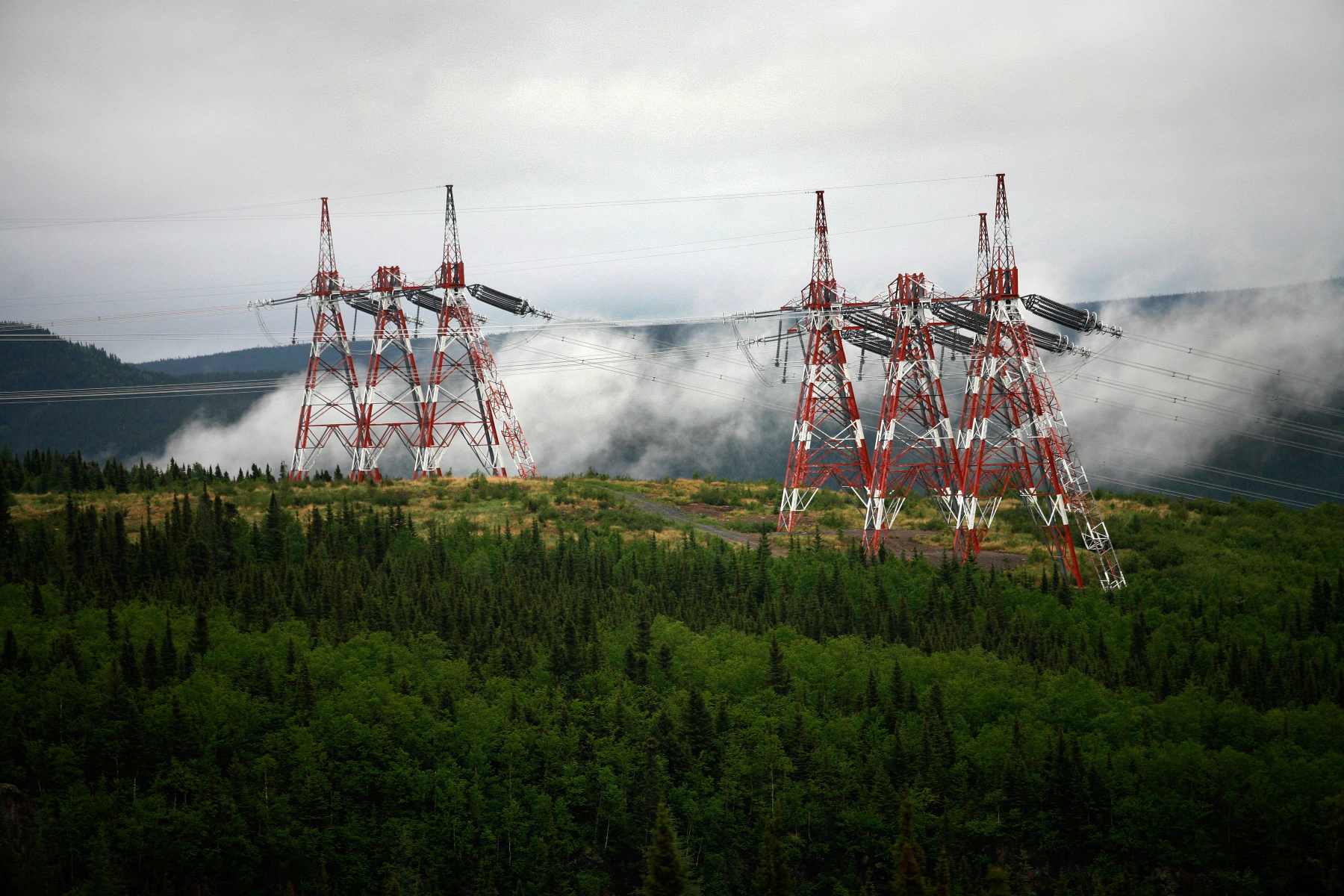Top Stories
Newfoundland’s Election Centers on High-Stakes Energy Deal

The upcoming provincial election in Newfoundland and Labrador is set against the backdrop of a pivotal energy deal that could reshape the region’s economic future. Premier John Hogan is focusing his campaign on the redevelopment of the Churchill Falls hydroelectric project, which promises to generate substantial revenue and create approximately 8,000 jobs. Hogan’s Liberal government is seeking re-election on October 14, 2023, with the hope that the proposed redevelopment will resonate with voters and address long-standing grievances stemming from past agreements.
In mid-September, during a campaign stop in Happy Valley-Goose Bay, Hogan pledged that if re-elected, he would ensure the redevelopment of the Churchill Falls project moves forward. This initiative is seen as critical for revitalizing the provincial economy, potentially unlocking $225 billion in revenue by 2075 through a new memorandum of understanding (MOU) with Quebec. The MOU is expected to significantly enhance Newfoundland and Labrador’s energy share, increasing it almost fourfold compared to previous agreements.
Hogan’s commitment comes after the resignation of former Premier Andrew Furey, who had initially negotiated the new agreement with Quebec Premier François Legault. The original 1969 Churchill Falls deal has been a source of frustration for generations, with Newfoundland and Labrador receiving minimal benefits while Quebec profited an estimated $80 billion. The new terms aim to rectify this imbalance, linking future energy prices to market rates rather than fixed, low prices.
Despite the optimism surrounding the Churchill Falls project, the election is far from straightforward. The opposition Progressive Conservatives, led by Tony Wakeham, endorse the project but are calling for greater transparency in the negotiations. They are also attempting to shift voter attention to other pressing issues, such as healthcare and crime.
Hogan’s campaign has had limited time to gain traction, as the election was called at the latest possible date under the fixed election law. The political landscape is fraught with uncertainty, as polling indicates a competitive race. Experts suggest that voter sentiment remains divided, particularly regarding the environmental implications of hydroelectric development.
In addition to economic benefits, the Churchill Falls redevelopment carries significant social and environmental considerations. Indigenous communities, particularly the Innu Nation, have expressed concerns over potential impacts on their land and traditional way of life. President Johannes Lampe has voiced apprehension about environmental risks, including increased methylmercury contamination, which could jeopardize food sources and community health.
The MOU includes provisions for Innu Nation representation and benefits from future projects, yet tensions persist within the community. Some members have criticized the leadership for allowing exploratory work without adequate consent. A proposed agreement between the Innu Nation and Hydro-Québec, offering $87 million over sixteen years, still requires community approval.
Political analysts predict a tight race, with Hogan’s leadership receiving mixed reviews. Kelly Blidook, a political scientist at Memorial University, notes that Hogan has not distinguished himself as a particularly charismatic leader, but he has garnered support in the wake of recent wildfires and the public’s approval of the MOU as a potential economic boost. Conversely, Wakeham’s campaign has not clearly articulated an alternative vision for Churchill Falls.
As the election date approaches, the outcome will likely shape the future of Newfoundland and Labrador, with implications for both economic recovery and Indigenous rights. The balance of power in the province may hinge on how effectively the candidates address these critical issues while navigating the concerns of a diverse electorate.
The stakes are high, and voters will soon decide whether to embrace a future centered on the promise of Churchill Falls or reconsider the risks associated with such a monumental undertaking. The implications of the election extend beyond immediate economic benefits, potentially marking a turning point in the relationship between the province and its Indigenous communities.
-

 Education3 months ago
Education3 months agoBrandon University’s Failed $5 Million Project Sparks Oversight Review
-

 Science4 months ago
Science4 months agoMicrosoft Confirms U.S. Law Overrules Canadian Data Sovereignty
-

 Lifestyle3 months ago
Lifestyle3 months agoWinnipeg Celebrates Culinary Creativity During Le Burger Week 2025
-

 Health4 months ago
Health4 months agoMontreal’s Groupe Marcelle Leads Canadian Cosmetic Industry Growth
-

 Science4 months ago
Science4 months agoTech Innovator Amandipp Singh Transforms Hiring for Disabled
-

 Technology3 months ago
Technology3 months agoDragon Ball: Sparking! Zero Launching on Switch and Switch 2 This November
-

 Education3 months ago
Education3 months agoRed River College Launches New Programs to Address Industry Needs
-

 Technology4 months ago
Technology4 months agoGoogle Pixel 10 Pro Fold Specs Unveiled Ahead of Launch
-

 Business3 months ago
Business3 months agoRocket Lab Reports Strong Q2 2025 Revenue Growth and Future Plans
-

 Technology2 months ago
Technology2 months agoDiscord Faces Serious Security Breach Affecting Millions
-

 Education3 months ago
Education3 months agoAlberta Teachers’ Strike: Potential Impacts on Students and Families
-

 Science3 months ago
Science3 months agoChina’s Wukong Spacesuit Sets New Standard for AI in Space
-

 Education3 months ago
Education3 months agoNew SĆIȺNEW̱ SṮEȽIṮḴEȽ Elementary Opens in Langford for 2025/2026 Year
-

 Technology4 months ago
Technology4 months agoWorld of Warcraft Players Buzz Over 19-Quest Bee Challenge
-

 Business4 months ago
Business4 months agoNew Estimates Reveal ChatGPT-5 Energy Use Could Soar
-

 Business3 months ago
Business3 months agoDawson City Residents Rally Around Buy Canadian Movement
-

 Technology2 months ago
Technology2 months agoHuawei MatePad 12X Redefines Tablet Experience for Professionals
-

 Business3 months ago
Business3 months agoBNA Brewing to Open New Bowling Alley in Downtown Penticton
-

 Technology4 months ago
Technology4 months agoFuture Entertainment Launches DDoD with Gameplay Trailer Showcase
-

 Technology4 months ago
Technology4 months agoGlobal Launch of Ragnarok M: Classic Set for September 3, 2025
-

 Technology4 months ago
Technology4 months agoInnovative 140W GaN Travel Adapter Combines Power and Convenience
-

 Science4 months ago
Science4 months agoXi Labs Innovates with New AI Operating System Set for 2025 Launch
-

 Technology4 months ago
Technology4 months agoNew IDR01 Smart Ring Offers Advanced Sports Tracking for $169
-

 Top Stories2 months ago
Top Stories2 months agoBlue Jays Shift José Berríos to Bullpen Ahead of Playoffs










